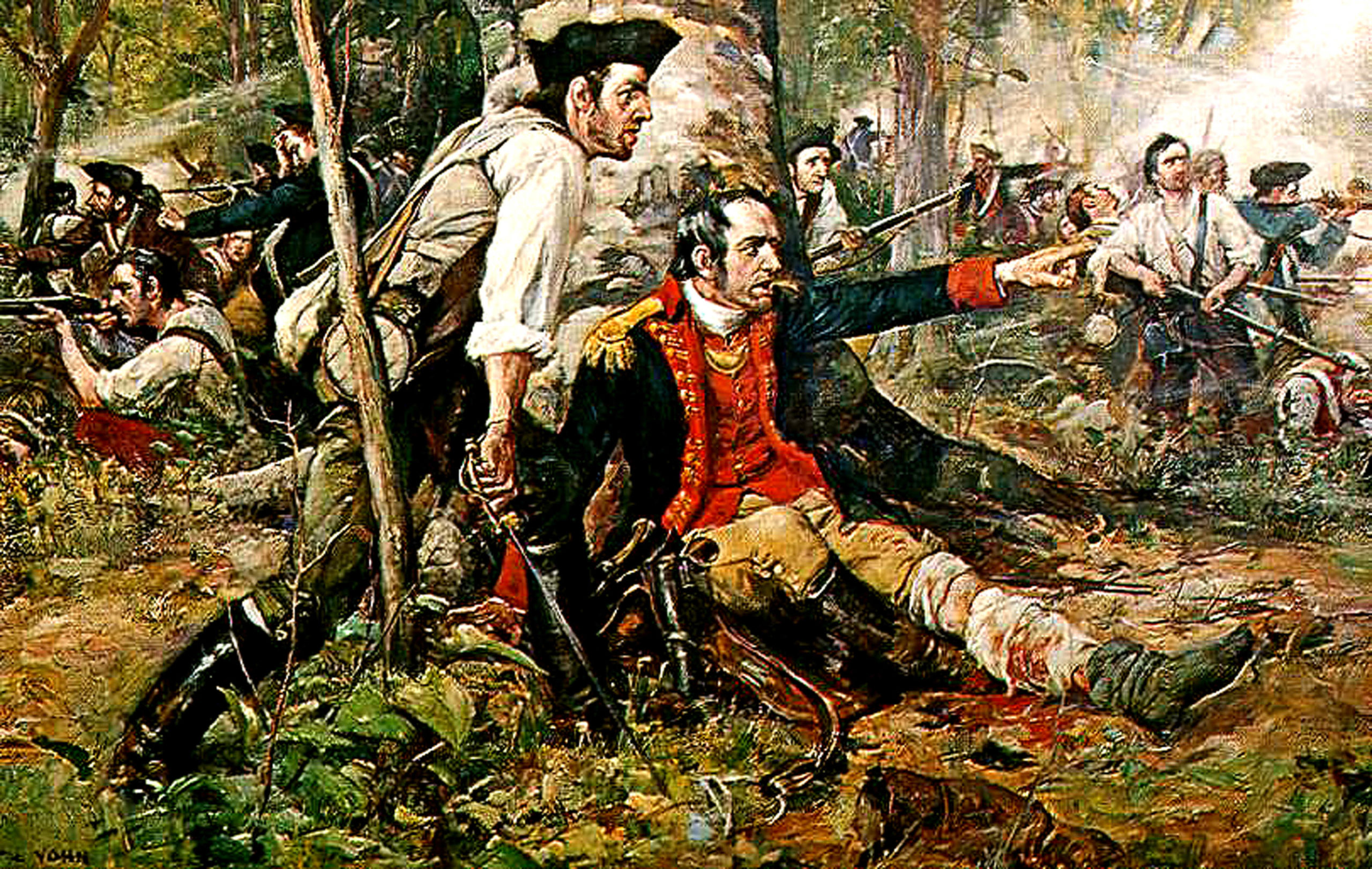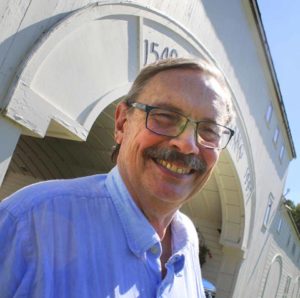COLUMN
WE’RE ALL IN THIS TOGETHER
Disunity Is As American
As Cherry Vs. Apple Pie

By LARRY BENNETT • Special to www.AllOTSEGO.com
The press says we live in an era of unprecedented political division. The amplification of every tweet may make it seem so, but there is a different view of the severity of our polarization.

The American Revolution saw Loyalists interested in compromises to prevent war, but colonists seeking independence who were not. Anyone trying to effect compromise or be neutral was suspected of Loyalist sympathies and often subject to violence.
The Revolution was the first American civil war, with suspicions dividing neighbors, families and friends. Loyalists were harassed, attacked, imprisoned and even executed. Many Loyalists fled the country.
Then came the contentious 1796 presidential election.
The Federalists were led by John Adams, and the Democratic-Republicans by Thomas Jefferson. In a multi-candidate presidential field, they were first and second in electoral votes.
Though deeply divided by personal beliefs and political association, Adams became president and Jefferson vice president. Jefferson was frozen out of executive decisions as Adams oversaw an undeclared naval war with France, one that Jefferson bitterly opposed.
Under Adams, the Alien and Sedition Acts passed and were used to silence Democratic-Republicans. Federalist opponents were arrested, tried before partisan judges, convicted of sedition and imprisoned.
In 1856, on the Senate floor, South Carolina Congressman Preston Brooks caned an anti-slavery senator from Massachusetts, Charles Sumner.
Conflicts were flaring across the nation, culminating in John Brown’s 1859 raid at Harper’s Ferry –
an unsuccessful attempt to start a slave rebellion.
In November 1860, Lincoln was elected president. Decades of polarization over slavery came to a head. In April 1861, Fort Sumter fell to the Confederacy and Civil War ravaged the nation until April 1865.
Over 750,000 Americans died while many millions became casualties – through injury, disease, losing their livelihoods, land and property.
WWI created heavy political polarization. In 1917 American labor unions, socialists and pacifist groups opposed the war. But the U.S. was dragged in and conscription began, was opposed by anti-war movements, and set off deadly
draft riots.
Thousands were prosecuted under the 1918 Sedition Act; conscientious objectors, many of them Christian pacifists, were punished and a number died in Alcatraz Prison, then a military facility. Around 300,000 men refused to register, report for duty, or deserted.
In September 1939, as America wrestled with isolationism, WWII came to Poland. There were bitter political battles between internationalists like FDR, and isolationists like Charles Lindbergh – the voice of the 800,000-member America First Committee, which was given to pro-fascist and anti-Semitic rhetoric. Two years of political polarization were only broken by the Japanese attack on Pearl Harbor.
The battle for civil rights, from the 1950s through the ’70s, resulted in hundreds of citizen deaths, thousands of protests, many thousands of arrests, and the assassinations of American leaders, both black and white.
The Vietnam War then divided all, including the Democratic Party – which imploded in the summer of 1968 when Chicago police beat anti-war protesters. Humphrey won the nomination and lost to Nixon, who continued the war for six years until forced to resign in 1974.
While 58,000 Americans and upwards of 2 million Vietnamese died, anti-war protests roiled the entire nation for over 10 years; 570,000 men were classified draft offenders and 200,000 were formally accused; 8,750 were convicted and 3,250 went to jail. Estimates of those who left for Canada and other countries range upwards of 50,000.
We have endured periods of intense political division and polarization, often worse than now, and frequently leading to horrendous outcomes. We have fought actual internal wars with lethal weapons, arrests, and imprisonment. But – Iraq and Afghanistan notwithstanding – today’s divisions are not about life-threatening forced conscription or American war deaths.
Our political polarization today is mainly a war of words and as Winston Churchill said, “Better to jaw-jaw than war-war.” Perhaps we can all work on being better at “jaw-jaw” and quit seeing fellow citizens as mortal enemies.
Larry Bennett, retired Brewery Ommegang creative director.

